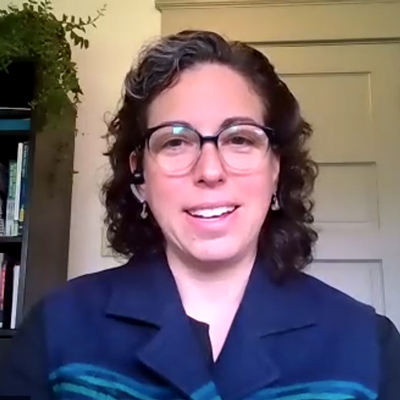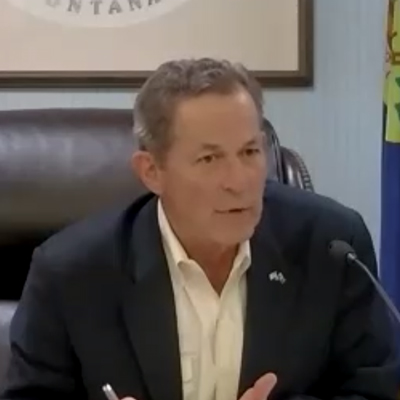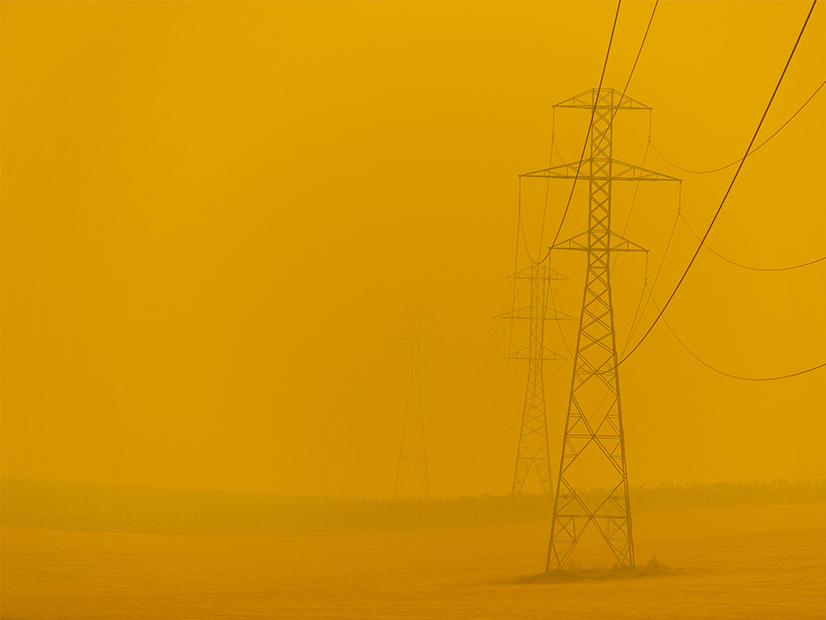Utility regulators from five Western states shared concerns and strategies for dealing with heat waves, cold snaps and wildfires during last week’s annual meeting of the Western Conference of Public Service Commissioners.
Extreme weather and its consequences are growing worse with climate change, and the West needs to cooperate to fight the threats to the electric grid and communities, they said.

“My word of caution to my colleagues is, ‘This is likely coming to a forest near you sooner than you want,’” Oregon Public Utility Commissioner Letha Tawney said.
Oregon has been paying close attention to the experience in California, which was the “canary in the coal mine” when it comes to rising temperatures and wildfires, Tawney said. With similar conditions affecting normally lush western Oregon, utilities there have began preparing for intentional blackouts to prevent fires this summer.
Portland General Electric called the state’s first public safety power shutoff (PSPS) on Sept. 7, 2020, during severe wind storms in the Pacific Northwest. (See High Fire Danger Prompts First Oregon PSPS Event.)
The storms “wreaked enormous havoc across both Washington and Oregon, driving really intensive fire activity unlike what we’re accustomed to and much more akin to what California’s been experiencing,” she said.
Other Northwest utilities, including the federal Bonneville Power Administration, have been making PSPS plans since then. (See With Wildfire Season Looming, BPA Prepares Shutoff Plan.)
Taking lessons from the California Public Utilities Commission, the Oregon PUC has been weighing protocols for PSPS events this summer, with a focus on how and when utilities should notify customers and local authorities about planned shutoffs, Tawney said.
“I had hoped we had a little more time, but really the time’s run out, and so we spent the winter getting temporary rules for how public safety power shutoffs will unfold in Oregon,” she said.
Arizona and California
Prolonged drought has increased fire risks in Arizona and across the West. (See Western Drought Increases Wildfire Risks.)
In Arizona, summers are growing hotter and longer, said Lea Marquez Peterson, chair of the Arizona Corporation Commission. Last year Phoenix topped 100 degrees Fahrenheit on 145 days, breaking previous records.
August and September saw Western heat waves that drove temperatures beyond 100 F across much of the Southwest, with Phoenix soaring above 115 F at times. CAISO had to order rolling blackouts in mid-August because of resource deficiencies as imports from Arizona and Nevada dried up during a brutal heat storm.
If rolling blackouts occurred in Arizona, losing air conditioning could become a matter of life and death, Marquez Peterson said.
“Following the challenges that California had this past summer, we hosted emergency meetings to understand the implications for Arizona,” she said.
California PUC President Marybel Batjer discussed the state’s extensive experience with massive wildfires and PSPS, which the commission has been trying to bring under control after millions of customers lost power in recent years. The state’s investor-owned utilities now are spending billions of dollars annually on wildfire mitigation, including grid hardening and vegetation management, she said. (See Calif. Tries to Rein in PSPS for Fire Season.)
California also has been struggling with resource adequacy issues as it transitions from fossil fuels to clean power, another trend taking hold across the West. (See CAISO Issues Final Report on August Blackouts.)
She acknowledged other states’ efforts and invited them to continue learning from the California’s problems and solutions.
“All of you have gone to school [on California] very well it seems,” Batjer said. “If you’re not ahead of us, you’re certainly alongside us in these really tough situations.”
Idaho and Montana
Idaho and Montana are different from other Western states but are proactively dealing with fires and weather, commissioners said.

In Montana, summers are generally mild, but winters are frigid, said state Public Service Commissioner Brad Johnson, the panel’s moderator.
“Just as a loss of air conditioning in Arizona when it’s 120 degrees is a major concern, so is loss of an ability to run your furnace when it’s 40 below in Montana,” Johnson said.
Unusually prolonged, frigid weather in the winter of 2018-2019 led to a “dramatic shortfall in generation” and pushed energy prices from $27/MWh to $900/MWh, he said.
“While we didn’t face any kind of outages as a result of that, the financial impact was dramatic,” he said.
Montana, he said, needs to avoid shortfalls like those that led to days of blackouts in Texas last winter. Taking reasonable steps to bolster the grid is “not gold plating if it heads off that 100-year catastrophe we saw in Texas,” he said.
In Idaho, extreme weather and wildfires have not caused problems like those in California and Oregon, but the state intends to take reasonable precautions without unduly burdening ratepayers, Idaho Public Utilities Commissioner Kristine Raper said.
“We have benefited from the pain that California has endured,” she said.
Wildfires and capacity shortfalls “didn’t come to Idaho first, [and they] didn’t come to Montana first,” she said. “So we’ve had the ability to be a little more proactive, and our utilities have had the ability to be a little more proactive in how they’re going to react and respond to these things without having to be in catch-up mode.”
Jordan White, a former member of the Utah Public Service Commission and now vice president of strategic engagement at WECC, said states, the federal government and organizations such as WECC need to work together to mitigate wildfires and climate impacts.
“I think the name of the game nowadays is coordination and lessons learned,” White said. “There’s no reason to reinvent the wheel again and again. It’s all about sharing those best practices and getting everyone pulling in the same direction.”



